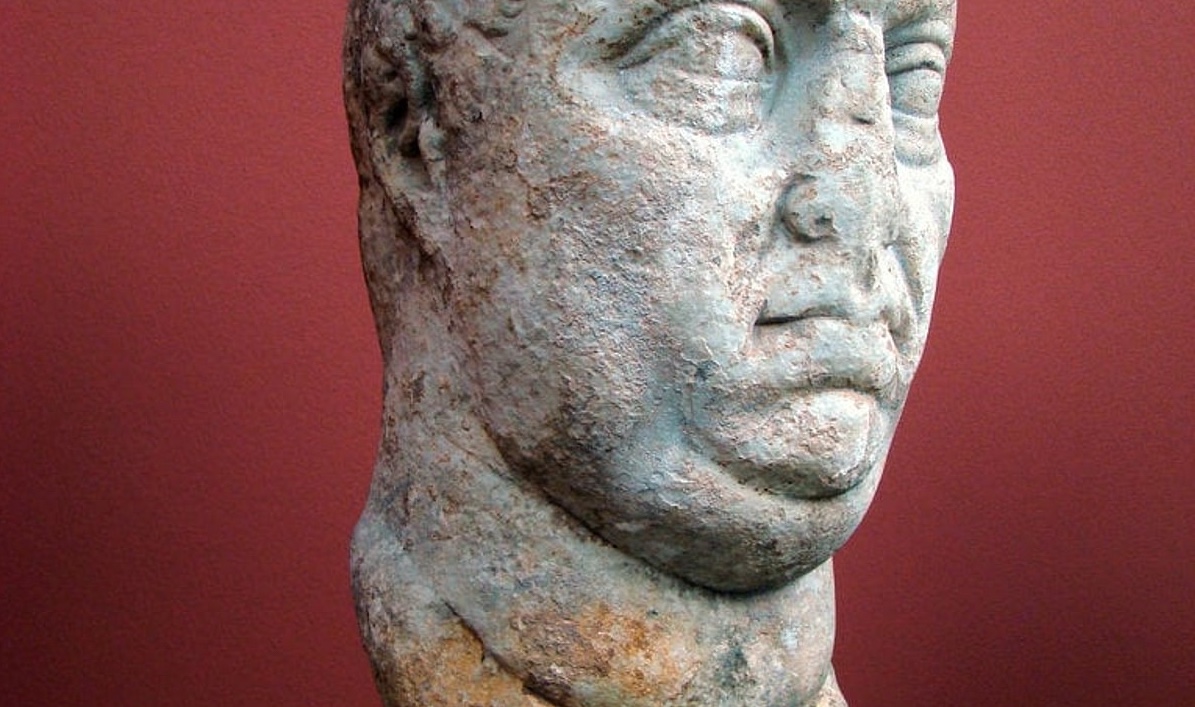The brief reign of Emperor Vitellius stands as a testament to the instability and turmoil that gripped the Roman Empire during the Year of the Four Emperors. As the successor to Galba and rival of Otho, Vitellius's ascent to power was marked by political intrigue, military conflict, and ultimately, his own tragic demise. Let us delve into the life, reign, and legacy of Vitellius, the gluttonous emperor who ruled in a time of chaos.
The Reign of Galba: Predecessor to Vitellius
The emporer before Vitellius - Galba, ascended to the imperial throne in the aftermath of Nero's downfall and the Year of the Four Emperors. Despite his initial popularity as a reformer and advocate for the Senate, Galba's rule was marked by authoritarianism and favoritism, alienating many within the Roman elite. His decision to bypass Otho and appoint Piso Licinianus as his heir ultimately led to his downfall, as Otho orchestrated a coup against his rule.Vitellius's Early Life and Rise to Power
Aulus Vitellius Germanicus was born into a distinguished family of the equestrian order in 15 AD. Despite his noble lineage, Vitellius's early career was marked by mediocrity and scandal, earning him a reputation as a man of questionable character. However, Vitellius's fortunes took a dramatic turn with the ascension of Galba to the imperial throne. Sensing an opportunity to advance his own ambitions, Vitellius threw his support behind Galba and was rewarded with the prestigious appointment of governor of Lower Germany.
Vitellius's Rebellion Against Otho
Following Otho's ascension to the imperial throne, Vitellius quickly emerged as a rival claimant to the title of emperor. Bolstered by the support of the legions in Lower Germany and the Rhine, Vitellius declared himself emperor and launched a rebellion against Otho's rule. The ensuing conflict, known as the Second Battle of Bedriacum, culminated in Vitellius's decisive victory over Otho's forces, cementing his position as emperor.
Vitellius's Reign: Gluttony and Excess
Vitellius's reign as emperor was characterized by extravagance, corruption, and debauchery. He indulged in lavish feasts, excessive spending, and nepotism, alienating many within the Roman elite and exacerbating the empire's economic woes. Vitellius's gluttonous lifestyle and incompetence as a ruler quickly eroded his popularity among the Roman populace, leading to widespread discontent and unrest.
The Rise of Vespasian and Vitellius's Downfall
Meanwhile, in the eastern provinces of the Roman Empire, the general Vespasian was proclaimed emperor by his legions, setting the stage for a confrontation with Vitellius. Vespasian's forces, led by his capable commanders Mucianus and Antonius Primus, launched a series of military campaigns to overthrow Vitellius's regime. In December 69 AD, Vespasian's armies descended upon Rome, culminating in the decisive Battle of Cremona, where Vitellius's forces were defeated.
Vitellius's Tragic Demise
Following his defeat at the hands of Vespasian's forces, Vitellius attempted to flee Rome but was captured by his enemies. In a cruel twist of fate, Vitellius was paraded through the streets of Rome, subjected to humiliation and abuse by the angry mob. On December 22, 69 AD, Vitellius was executed by Vespasian's soldiers, bringing an ignominious end to his brief and tumultuous reign as emperor.
Legacy and Impact
In death, Vitellius left behind a legacy of incompetence, corruption, and excess. His brief reign as emperor was marked by chaos, instability, and widespread suffering among the Roman populace. As we reflect on Vitellius's legacy, we are reminded of the fragility of power and the consequences of leadership driven by self-interest and greed. Though his time in power was short-lived, Vitellius's reign serves as a cautionary tale of the dangers of unchecked ambition and the perils of political intrigue in ancient Rome.




